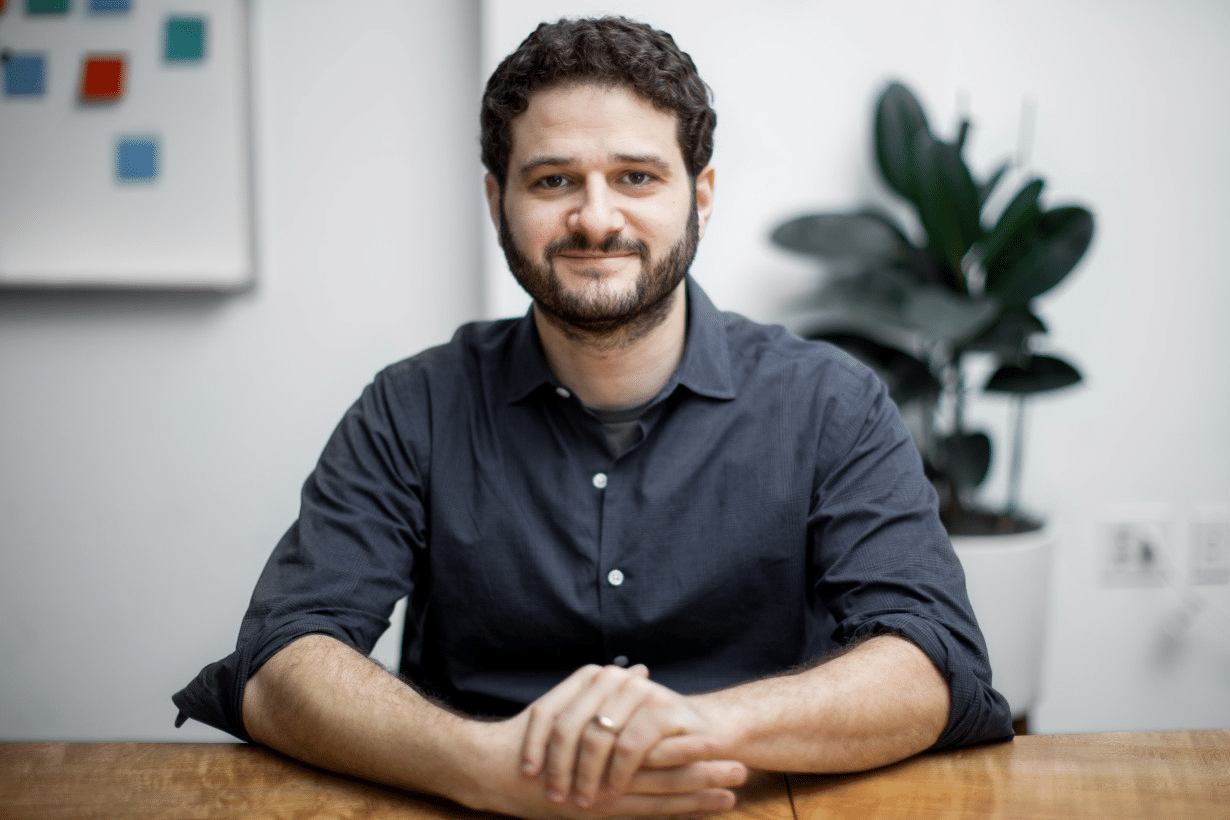Dustin Moskovitz, the famous American billionaire and tech genius, earned his fame and fortune by co-founding Facebook with Mark Zuckerberg. In 2011, thanks to his success with the famous social platform, Moskovitz became the world’s youngest self-made billionaire.
Fast forward to 2024, and Dustin Moskovitz’s net worth is estimated at over $20 billion.
The American billionaire internet entrepreneur transitioned from being Facebook’s chief technology officer to becoming the CEO of top project management software company Asana. He has also invested in a multitude of other successful ventures over the years.
To learn how he earned the status of the youngest self-made billionaire and kept increasing his wealth, keep reading.
How Much is Dustin Moskovitz Worth in 2024?
- Net Worth: Estimated at over $20 billion.
- Facebook Stake: 7.6% worth ~$7.6 billion.
- Asana Stake: 114.4 million shares worth $8 billion.
- Helion Energy Investment: $40 million Series D.
- Real Estate: $800,000+.
6 Fun Facts About Facebook Co-Founder Dustin Moskovitz
- Harvard Dropout: Left Harvard to work on Facebook full-time.
- Facebook Co-founder: Co-founded Facebook with Mark Zuckerberg.
- Youngest Billionaire: Became the world’s youngest self-made billionaire in 2011.
- Philanthropy: Co-founded Good Ventures with his wife, Cari Tuna.
- Asana Founder: Co-founded Asana in 2008, a popular project management tool.
- Political Contributions: Donated $24 million to support Biden’s 2020 presidential campaign.
Dustin Moskovitz’s Net Worth Breakdown:
People with such significant wealth rarely disclose information about their assets, but considering that most of Moskovitz’s fortune comes from Facebook and Asana (which are both public companies), we have a very clear idea of what makes his net worth today.
Here is a breakdown of his major assets:
| Asset or Income Source | Contribution to Net Worth |
| Facebook stake | 7.6% worth ~$7.6 billion |
| Asana stake | 114.4 million shares worth $8 billion |
| Facebook, Asana salaries | Unknown |
| Helion Energy investment | $40 million Series D |
| Real estate | $800,000+ |
| Total Net Worth | $20+ billion |
Dustin Moskovitz Net Worth: Early Life and Harvard Education
Dustin Aaron Moskovitz was born on May 22, 1984, to a Jewish family who lived in Gainesville Florida. Not long after his birth, the family moved to Ocala, Florida, where young Dustin Moskovitz spent his childhood.
Moskovitz attended Vanguard High School and graduated from the school’s IB Diploma Program. Following his graduation, he pursued an economics major at Harvard University.
He remained at Harvard University for two years before he and his friend Mark Zuckerberg moved to Palo Alto, California, to focus on Facebook full-time.
Dustin Moskovitz Net Worth: The Life of a Serial Entrepreneur
Moskovitz co-founded Facebook while still at the university. He was instrumental in designing the platform that we all know today, but that is not his only major accomplishment in the tech industry.
Let’s see how he built his fortune over the years.
Founding Facebook
Back in 2003, Mark Zuckerberg wrote the software for a website he called Facemash. He then hacked into Harvard’s security network, copied images from student ID cards used by the dormitories, and posted them on his website.
The idea was to allow visitors to compare student photos side-by-side and choose who is ‘hot’ or ‘not’.
This venture closed a few days after it opened since it was shut down by Harvard executives. The aftermath was bad for Mark Zuckerberg since he faced serious charges of violating copyrights, individual privacy, and breach of security.
However, he wasn’t expelled from the school, and all charges were eventually dropped.
After this failure, Zuckerberg started writing code for a new website and eventually founded TheFacebook on February 4, 2004. The website was named after the directories that students received to help them get to know one another better.
“Everyone’s been talking a lot about a universal face book within Harvard,” – Zuckerberg told the Crimson. “I think it’s kind of silly that it would take the university a couple of years to get around to it. I can do it better than they can, and I can do it in a week.”
He didn’t do this on his own, though. Initially, he partnered with Eduardo Saverin, and each of them invested $1,000 in the new website. After this, the two partners asked a few of their friends to join in managing and developing thefacebook.com.
The five partners in the venture are:
- Dustin Moskovitz
- Mark Zuckerberg
- Eduardo Saverin
- Chris Hughes
- Andrew McCollum
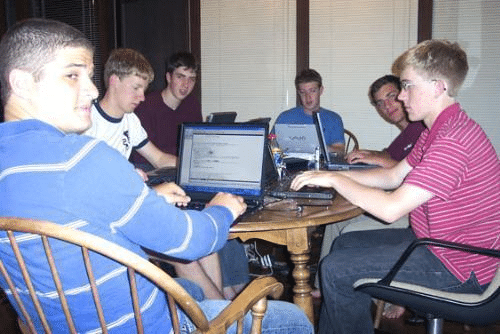
The famous platform was initially called thefacebook.com and was intended as an online directory for the university’s students, not the public. The idea was to create a program that residential students could use to identify other members and make connections.
The partners initially shared it on the Kirkland House online mailing list, targeting several hundred people.
To their surprise, it was almost immediately successful and expanded well beyond their expectations.
“By the end of the night, we were actively watching the registration process. Within twenty-four hours, we had somewhere between twelve hundred and fifteen hundred registrants.” – shared Dustin Moskovitz.
Facebook co-founders Mark Zuckerberg, Dustin Moskovitz and Andrew McCollum with Sean Parker (co-founder of Napster) pic.twitter.com/vfWTW9FPvD
— Dripped Out Technology Brothers (@TechBroDrip) November 15, 2022
In the beginning, membership to thefacebook.com was restricted to Harvard students.
Dustin Moskovitz worked as a programmer, Eduardo Saverin handled the business part of the venture, Chris Hughes was the de facto spokesperson, and Andrew McCollum worked as the website’s graphic artist.
Six days after the launch of the platform, three seniors at the university, including the Winklevoss brothers Cameron and Tyler, and Divya Narendra, accused Zuckerberg of misleading them into believing that he would help them build HarvardConnection.com, a social media network, but instead used their idea to create a competing product.
Following the formal complaint to the Crimson, the newspaper started investigating. Fast forward to 2008, and after a lengthy lawsuit, Zuckerberg and the twins reached an agreement where he paid them $65 million. The Winklevoss twins would go on to make their own fortune by investing in Bitcoin early.
In June of that same year, Moskovitz, Hughes, and Zuckerberg took a year off from university and moved Facebook’s base of operations to Palo Alto. They expanded the small venture by hiring eight employees at first and were later joined by Sean Parker.
Eventually, Dustin Moskovitz became the company’s first chief technology officer and later changed his role to vice president of engineering.
Turning Facebook into the World’s Most Popular Social Network
In 2004, the company was renamed Facebook after the founders purchased the domain name for $200,000. That same summer, famed venture capitalist Peter Thiel became an angel investor with $500,001, joining the company’s board and getting 10.2% of the company in return.
Sean Parker, the President of Facebook at the time, was able to secure Thiel’s investment, which would turn out to be a colossal turning point for both parties.
A year later, Facebook counted 6 million monthly active users. In comparison, in 2023, the social network had 2.989 billion monthly active users and it now exceeds 3 billion monthly users.
In 2005, the platform had already expanded to twenty-one universities in the UK and even more worldwide. The company even launched a high school version and expanded membership eligibility to employees of selected companies such as Microsoft and Apple Inc.
Eventually, by the end of the year, Facebook’s users spanned 2000 colleges and 25,000 high schools in the US, Canada, Mexico, the UK, Australia, Ireland, and New Zealand.
On September 26, 2006, Facebook was finally opened to everyone aged 13 and older as long as they had a valid email address.
Facebook.com isn’t the only domain of the business today. In 2010, the company bought FB.com from the American Farm Bureau Federation for $8.5 million. Following this purchase, they also acquired top brand assets like messenger.com and internet.org.
For several years, starting from 2010 when Facebook shares had grown tremendously, Moskovitz was the youngest billionaire on the planet, right before his friend (Zuckerberg was only eight days older). He held this title until 2015 when the founder of Snapchat, Evan Spiegel, took his place.
Facebook Goes Public
Facebook had its initial public offering scheduled in 2012. Just before the IPO, Yahoo! filed a suit in a US federal court against the company, claiming that it had infringed on ten of its patents covering privacy controls, social networking, and advertising.
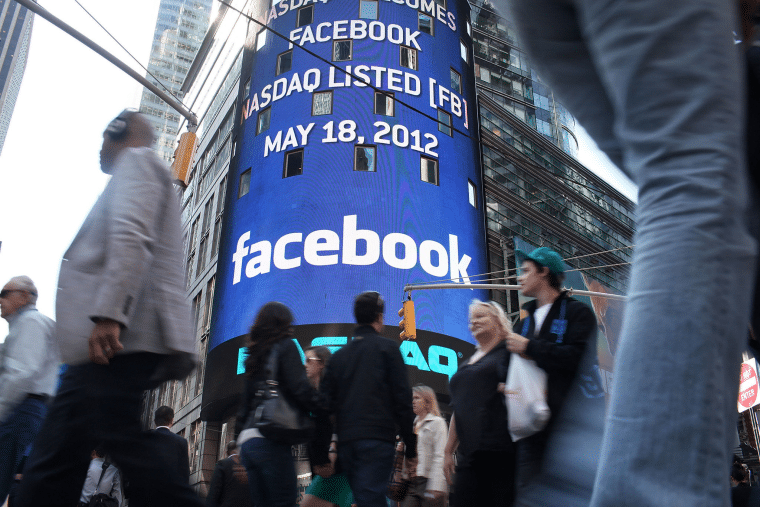
Eventually, on May 18, 2012, Facebook finally held its initial public offering, in which it raised $16 billion, becoming the third-largest IPO in the history of the United States, making the owners many millions of dollars.
Dustin Moskovitz’s Facebook Stake and Earnings
On October 3, 2008, Dustin Moskovitz announced that he was leaving Facebook to form Asana with Justin Rosenstein, an engineering manager who worked with him at Facebook.
Even though he officially left Facebook and no longer holds a position there, he still owns a massive stake in Facebook.
Moskovitz reportedly owns 7.6% of Facebook or 124.6 million shares these days, which equals around $7.6 billion. In comparison, Zuckerberg owns around 29.3%, Eduardo Saverin owns 5%, and Sean Parker owns 4% of the company.
In 2021, Facebook was rebranded as Meta Platforms.
Founding Asana
After he left Facebook in 2008, Moskovitz started working on Asana with Justin Rosenstein. The idea behind this new venture was to improve the efficiency of an office worker, giving them a tool they could use to track their tasks and projects.
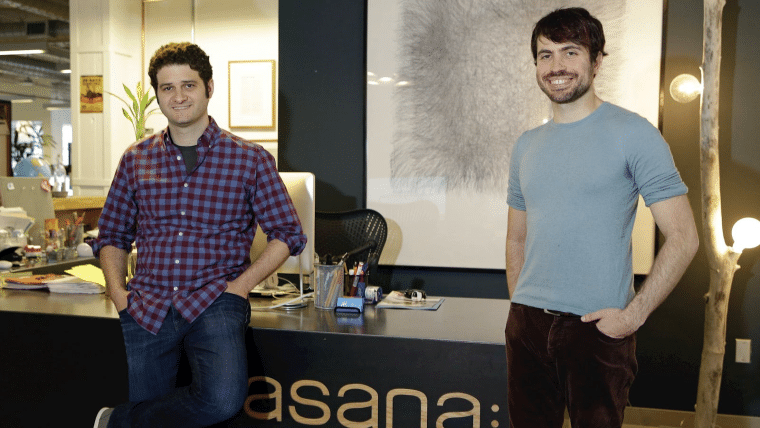
Asana was launched commercially in 2012 after one free beta run in 2011. To date, Moskovitz is Asana’s CEO while Rosenstein is a board member and advisor.
In 2019, the company had a revenue of $142 million and was valued at $1.5 billion. In September 2020, Asana also went public on the New York Stock Exchange and had a market value of $5.5 billion in a direct listing.
A year later, the venture counted over 107,000 paying customers.
Stake in Asana
Dustin Moskovitz initially owned 52,045,482 shares of Asana Inc., valued at around $984 million. However, he has been ‘vacuuming up’ shares of the business for years, so his stake is much higher today. Asana’s shares have also skyrocketed since, making his current stake worth around $8 billion.
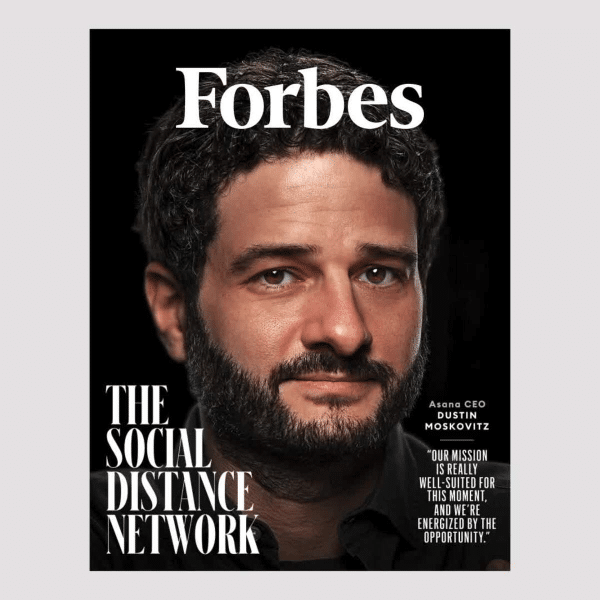
in 2023, he purchased 480,000 additional shares, making his ownership jump to a total of 111.4 million shares.
Philanthropic Endeavors and Charitable Causes
Dustin Moskovitz is just as much of a philanthropist as he is a businessman, and he has given up a significant portion of his net worth over the years.
In 2011, Moskovitz and his wife, Cari Tuna, co-founded the philanthropic organization Good Ventures. A year later, Good Ventures partnered with GiveWell, the charity evaluator, pledging to do as much good as possible.
From its creation onward, Good Ventures has donated over $100 million to GiveWell’s top charities like GiveDirectly, Against Malaria Foundation, Deworm the World Initiative, and Schistosomiasis Control Initiatives.
This same collaboration brought a spinoff named the Open Philanthropy Project. The project aimed to find the best possible way to use large donations to do the best for society. Since then, The Open Philanthropy Project has become an individual organization and has made over $170 million in grants in 2018 alone.
Moskovitz and Tuna are also the youngest couple to sign the Giving Pledge. The pledge commits 30+ of the world’s richest people in the world to give away most of their wealth throughout their lifetime. Some other notable signatories of the Pledge are:
- Berkshire Hathaway’s chairman Warren Buffet
- Microsoft’s founder Bill Gates
- Fund manager Ray Dalio
- Virgin Group’s Richard Branson
- The former Mayor of New York Michael Bloomberg
- Oracle’s founder Larry Ellison
- Apple’s CEO Tim Cook
- Google’s founder Larry Page
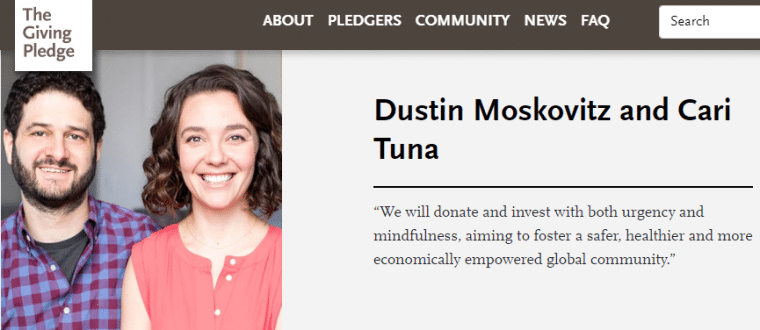
Involvement in Politics
Apparently, Moskovitz wasn’t busy enough with his businesses, investments, and philanthropy, so he got involved with politics, making several massive donations.
He is a public proponent of the Democratic Party, having voted for their candidates in each election. He and his wife donated over $10 million to federal candidates including Sean Eldridge, the husband of one of Facebook’s co-founders, Chris Hughes.
They also pledged to donate $20 million during the 2016 United States presidential election to support Hillary Clinton, hoping to prevent Donald Trump from becoming the president.
In 2020, Moskovitz donated $24 million to support Biden’s presidential campaign. Asana’s total listed contributions for the election cycle, most of which come from the Moskovitz family, reached around $45 million, making them the second largest contributor to the campaign after Bloomberg LP.
Depictions in Media
As a major name in the software industry, Moskovitz has been depicted in media, too. He was played by Joseph Mazzello in the hit film “The Social Network”, which aired in 2010.
The movie is based on the book “The Accidental Billionaires” and tells the story of Facebook’s co-founders.
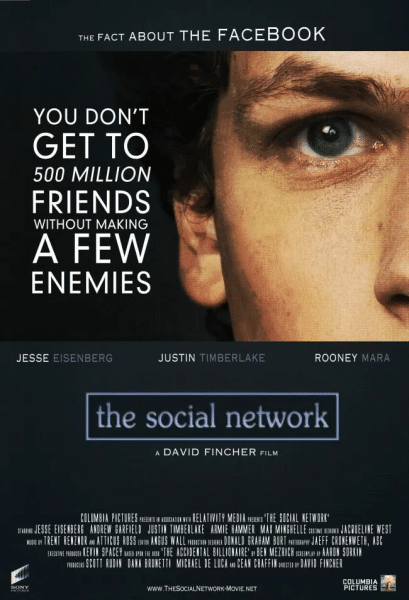
Dustin Moskovitz Net Worth: Other Businesses and Investments
Dustin’s net worth reached the millions when he built Facebook and he became a billionaire soon after he co-founded Asana. The combined stake in Facebook with that of Asana is what makes up most of his wealth, but these aren’t the only assets he has invested in over the years.
Investment in Path
In addition to FB and Asana, Moskovitz was the biggest angel investor in a mobile photo-sharing site called Path. Path was co-founded by Dave Morin, former Facebook executive, and Shawn Fanning and launched in 2010.
A year later, Google made a $100 million offer for Path, but Moskovitz advised Morin to reject it. In 2012 and 2013, the business dealt with some controversy and was fined by the FTC. In 2014, Path struggled amid competition from social media sites.
Eventually, in 2015, Path was acquired by Kakao, the South Korean internet company at an undisclosed sum. In 2018, this service was discontinued.
Investment in Helion Energy
In 2020, Helion Energy, a nuclear fusion energy company, announced that it closed a $40 million Series D funding round led by Dustin Moskovitz. The funds were used to accelerate the company’s work on Trenta, its fusion reactor prototype, and it remains a leading fusion startup today.
Other Assets
Moskovitz’s family lives a rather private life, so little is known about their assets outside of publicly traded businesses. Reportedly, he lives in a $800,000 San Francisco condo and bikes to work at Asana, while he also has a Volkswagen R32 hatchback in his garage.
“Things can’t bring you happiness,” Moskovitz said. “I have pictured myself owning expensive things and easily came to the conclusion that I would not have a materially more meaningful life because of them.”
What Can We Learn from Dustin Moskovitz’s Story?
Dustin Moskovitz is one of those people who were destined for success from their early days.
Even while at university, it became evident that Moskovitz would be successful. His work for Facebook while still taking classes at Harvard paved the way for grand success, and Moskovitz hasn’t disappointed since.
There are plenty of things we can learn from the businessman’s story. For starters, Moskovitz recognized the potential of social networking earlier than most, which shows us how important it is to take bold steps and pursue innovative ideas.
During his time at Facebook and Asana, Moskovitz demonstrated adaptability and persistence in navigating the challenges of scaling and building startups.
He faced numerous setbacks along the way, but remained flexible and resilient, adapting his strategies to the changing circumstances.
For such a rich person, Moskovitz lives a very modest life. He knows that you don’t need a bunch of fancy materialist things to be happy and the pursuit of them could actually do more harm than good.
His story is truly inspiring, especially if we consider that, after creating one of the most successful ventures in the world, he left to pursue another great idea he had and was able to build another massive business.
This shows that one can diversify their revenue streams, investments, and goals as long as one possesses the skills and does the hard work to succeed.
